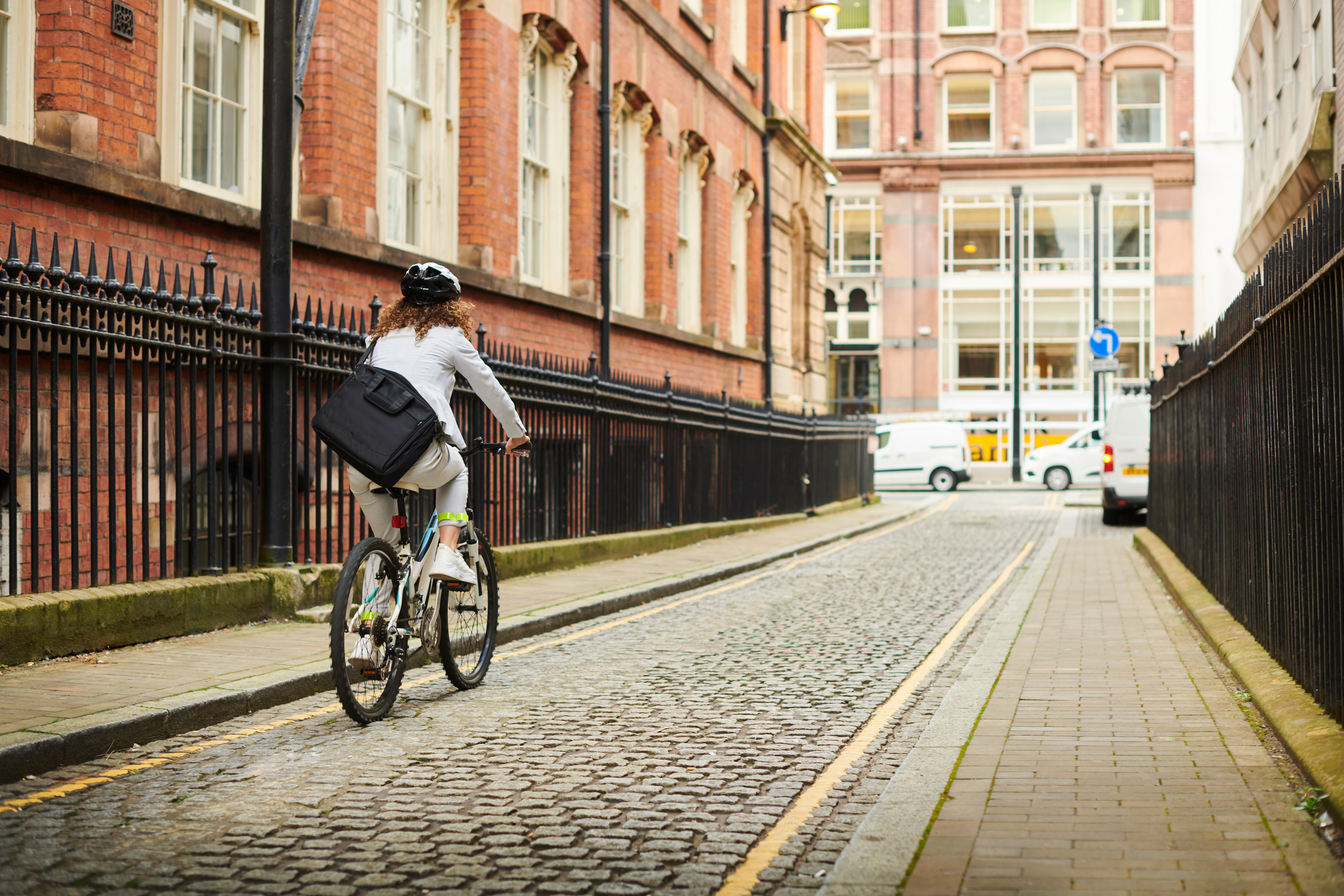Bikes don’t need number plates – but there is a serious side to this silly season story
The debate about cyclists is not really about the law – it is a tribal dispute over a scarce resource, namely road space, writes John Rentoul


Write about what you know, they say. So I am well qualified to write about the Daily Mail’s silly season front-page story today, “Cyclists may need number plates.” Not only am I a cyclist, but I am also a journalist, so I am in a good position to congratulate a rival news organisation on a headline that has started thousands of arguments across the country.
It is nonsense, of course. There is no prospect of licence plates being introduced for bicycles in the UK, and everyone knows it. But that is irrelevant if there is a good squabble to be had. The story was teased out of a short interview with Grant Shapps, the transport secretary, in which he observed that speed limits do not apply to cyclists, “and that cannot be right, so I absolutely propose extending speed limit restrictions to cyclists”.
He is right that speed limits currently apply only to motor vehicles, and the Mail noticed that if the law were changed to include cyclists, there would have to be a way of enforcing it, which requires a means of identifying bikes, such as number plates. Another case study for my forthcoming book, How Journalism Works.
Or possibly for a different book called How Politics Works. When parliament is not sitting, the prime minister is on holiday and a leadership election is at full flood, ministers need eye-catching initiatives in order to stake their claim to keep their job or to win promotion to another.
Hence Shapps’s pitch to the grumpy motorist: “I see no reason why cyclists should break the road laws and be able to get away with it.” This directly contradicted what he had just said two sentences earlier, namely that “cyclists are actually not breaking the law … when they speed”, but it captures the authentic resentment of drivers who see cyclists jumping red lights, riding on pavements or generally acting irresponsibly.
Licence plates for bicycles would make no difference, and new laws are unnecessary – especially if they impose speed limits. Few cyclists can go as fast as 30mph, and most would struggle to reach the 20mph limit that applies in some residential streets.
The existing law is perfectly adequate. “A person who rides a cycle on a road dangerously is guilty of an offence,” says section 7 of the Road Traffic Act 1991. (If the penalties under that act are insufficient, there is always the offence of “wanton or furious cycling” under section 35 of the Offences Against the Persons Act 1861.)
But the debate is not really about the law. It is a tribal dispute over a scarce resource, namely road space. In which grievances are exaggerated on both sides. As a cyclist, I naturally prefer my side’s version, which is that cycles rarely kill people whereas motor vehicles frequently do. We see people drive too fast, turn suddenly and open car doors without looking, and think the behaviour of their irresponsible minority is more dangerous than that of our irresponsible minority.
To keep up to speed with all the latest opinions and comment, sign up to our free weekly Voices Dispatches newsletter by clicking here
We understand that drivers resent the road space carved out for bike lanes, which often seem empty (partly because bikes don’t take up much space), but some of the bike lanes in central London are already full at rush hours. The whole point was to build them and then see them fill up, which was my experience, as I discovered during lockdowns that Boris Johnson had built segregated cycle lanes all over London. This made cycling in the city safer than it had been when I gave up decades ago.
The debate should not be about the law on cyclists – better enforcement of the existing law is all that’s needed. The real debate is about regulating the new technology of electric bikes and scooters. These are already subject to their own speed limit – 15.5mph, which is a hangover from EU regulations, as it is equivalent to 25kph. But they annoy both tribes of existing road users. Yet they are likely to be part of our low-carbon future. Indeed, the technological revolutions of electric vehicles, road pricing and self-driving cars are going to change the debate entirely.
But in the meantime, it’s a quiet news day in August and people are bored with the Tory leadership campaign, so let’s have a moan about how selfish and dangerous other people are.



Join our commenting forum
Join thought-provoking conversations, follow other Independent readers and see their replies
Comments